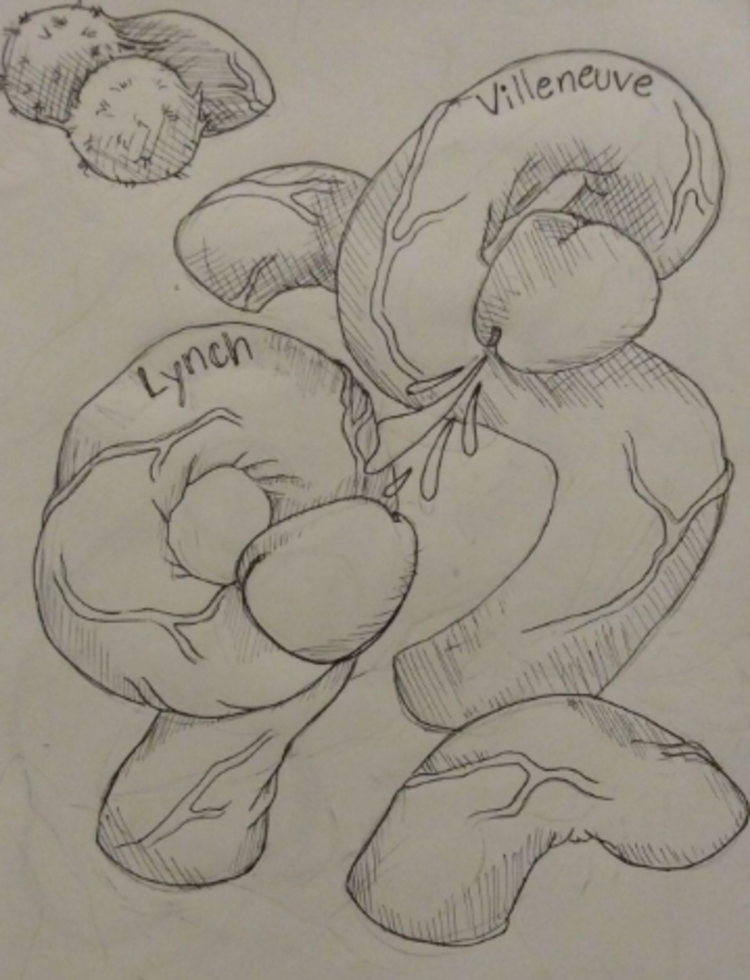Dune Versus Dune: Into the Duniverse
Barbara Berkeley #film review
 Art by R. Bliss
Art by R. Bliss
“Dune (2021) is a good movie” is not a controversial idea, and for good reason. It’s a well-made movie, and an excellent adaptation of a seemingly unadaptable book. I’m a woman of simple taste; if a movie has cool visuals and a good score, I’ll enjoy every second of it, and Dune (2021) delivered. Every shot was gorgeous, and the music added an incredible sense of atmosphere. Beyond that, Dune (2021) told a well-paced and interesting story. I went in having read part of the first book, which definitely helped me understand what was going on, but I think I would’ve enjoyed the movie regardless of whether I’d consumed the source material.
Dune (1984) is one of the worst movies I’ve ever seen. If I had a dollar for every time I thought “What the hell is going on?” while watching the movie, I’d be rich beyond my wildest dreams. Every aspect of Dune (1984) is fundamentally broken; from the stilted, unnatural dialogue supplemented by even more stilted, unnatural voiceovers; to the confused aesthetic; to the campy, aggressively 80’s score. Sting was cast as Feyd-Rautha Harkonnen, a crime I cannot forgive. Ultimately, the movie was so weird and unlike anything I’ve ever seen before that I can’t bring myself to hate it. I will not, however, be watching it again, at least not while sober.
If a movie adaptation of Dune doesn’t properly convey the message of the original text, it isn’t a good piece of art. Frank Herbert’s Dune is fundamentally a message against colonialism and imperialism. Paul is presented as the hero, but when he becomes the Emperor of the known universe, he rules as a tyrant and causes the death of billions. Paul’s legacy is death and suffering and despair. The Harkonnens are presented as evil and grotesque, while the Atreides are dutiful and heroic, but in the end, both are colonizers. Both are imperialists. Both are evil.
Dune (1984) shows Paul’s rise to power, but not his fall from grace. Both parts of the story are necessary for a complete understanding of Frank Herbert’s message, and by presenting Paul as a purely heroic character, Dune (1984) tells a standard white savior narrative. Dune (2021) also tells an incomplete story, but the promise of a sequel makes me more lenient in my judgement. There are hints throughout the film of the direction the narrative is heading. We see this in the fascist imagery of House Atreides, the clear class disparity between Atreides and their Fremen subjects, and Chani’s condemnation of the exploitation of her planet. Dune (2021) is by no means a perfect critique of colonialism, but it seems like a good start.
If you haven’t seen Dune (2021), go watch it. If you haven’t seen Dune (1984), you’re probably doing yourself a favor.